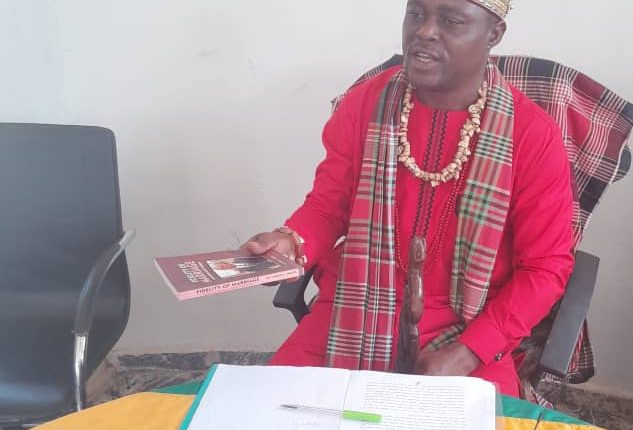Amend LG law for effective representation of autonomous communities, monarch urges Abia Govt
The Eze-elect of Nsirimo Amaise Autonomous Community in Umuahia South local government area of Abia State, His Royal High Prince Ugochinyerenwa, Dr Charles Chukwuemeka Amanze, has called for the amendment of the state’s local government law to guarantee effective representation of autonomous communities in the third-tier government administration
Dr. Amanze is proposing that the Abia State local government law be amended to allow each autonomous community in the state to have a representative in the local government Council.
He said that the number of Councillors representing the people through the Wards were currently inadequate, resulting to a situation where autonomous communities have to share one Councillor which does not allow for effective grassroots representation and inclusiveness.
According to the businessman, in a statement made available to newsmen in Umuahia, believes that Abia would reap maximum benefits from the proposed amendment in this era of local government autonomy.
The statement reads in part: “As we celebrate our New found autonomy of the Local Government system granted by the Nigerian Federal Government, I wish to bring to the attention of our esteemed state government, a crucial matter.
“The Executive Governor of Abia State, Dr. Alex Chioma Otti, (OFR), and the esteemed members of the State Legislature, political parties and all stakeholders, we have been granted local government autonomy, but our journey is far from over.
“We need a voice in the Local Government Council for each autonomous community to ensure that our communities are carried along in the scheme of things.
“I therefore urge our government to take necessary steps to provide for the representation of autonomous communities, like ours, in the local government administration.”
“To ensure equitable representation and effective governance, we propose that each autonomous community within the local government area have its own dedicated representative in the Local Council administration. This will replace the existing rotational system of Councillors,” he added.
He sounded optimistic that adopting individual autonomous community representation would ensure that every community has “a strong, dedicated voice,” which would serve as a vital link between the local government and the community.
The Cultural Ambassador said that the amendment should set out clear guidelines for election or selection of such a representative.
According to Dr. Amanze, the Community Representative should not replace the Councillor who occupies the legislative arm of the local Councils, but rather play complementary roles.
He enumerated the primary functions of the Community Representative to include advocating community interests and needs, providing feedbacks on Council and Community decisions, among others.
Reasons he adduced why a Councillor representing many autonomous communities was no longer fashionable in the 21st Century include lack of full knowledge of each community’s specific needs, prioritizing party interests over community concerns and not being accessible or accountable to the community, a task the Community Representative would accomplish with ease.
For him, the Community Representatives would ensure community participation in the local government’s decision-making process and easily facilitate collaboration between community groups and the local government.
“This dual representation ensures more effective governance and community engagement,” he said.
He further stressed that no matter how challenging, complex or resource-gulping the Community Representation might be, it is a milestone which “presents an opportunity to further democratize our governance and ensure inclusive representation at the grassroots.”

